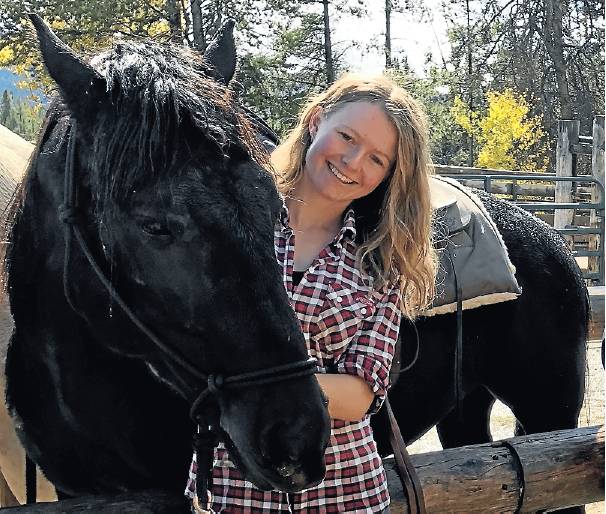Creative flair
Asha Wiltshier likes her Steiner school’s small class sizes. ‘‘You get to interact with teachers a lot. It is a nice community and you know everyone,’’ she says.
The year 12 Sydney student says the outdoor learning she’s undertaken since kindergarten at Glenaeon Rudolf Steiner School has inspired her to pursue a career in science.
Wiltshier has trekked the Tasmanian wilderness, visited a central Australian Indigenous school and says she loves ‘‘hands-on’’ learning.
Her HSC subjects include physics, biology, chemistry and maths and she’s keen to enrol in advanced science or forensic science at university.
Glenaeon, a K-12 Steiner school at Middle Cove, was the first of its kind in Australia, opening in 1957.
Despite its unconventional reading program – formal reading lessons start at about age seven using a ‘‘whole language’’ method rather than phonics – and an ‘‘unplugged’’ policy for students that sees digital technology delayed until Year 7, the Steiner school method is growing.
Four new schools have opened in Victoria, NSW, QLD and Tasmania in the past few years and more than 1200 schools form an international network.
The Steiner model originated in Germany, seeking to provide a ‘‘holistic’’ education underpinned by an understanding of the human being as being made up of body, soul and spirit.
Creativity and imagination are core curriculum elements and schools are built in aesthetic, natural environments.
‘‘A key focus in Steiner education is to ensure that each child finds joy in childhood and has the time to allow their inner capacities to unfold,’’ says Steiner Education Australia chief executive Tracey Sayn Wittgenstein Piraccini.
The Australian Government’s goal of having a school system ranked top five in the world by 2025, based on student performance in reading, mathematics and science, is ‘‘pushing reform all the way down to two-yearolds in early childhood and placing undue stress on school leaders, teachers and students’’, says Wittgenstein Piraccini.
‘‘Comparing countries like North Korea, Finland or Singapore with Australia through narrow test scores in limited fields on a global race to the top does not take into account the many differences that each country has.’’
Wittgenstein Piraccini says all Steiner schools offer NAPLAN, but some parents elect to withdraw their children from the tests because those parents regard the tests as counterproductive to imaginative learning in primary years.
‘‘I think many parents choose Steiner education because we are successful in providing a relevant, engaging, creative and artistic approach which develops a real love of learning, imagination, confidence, innovation, focus and perseverance through a hands-on, artistic approach,’’ she says.
